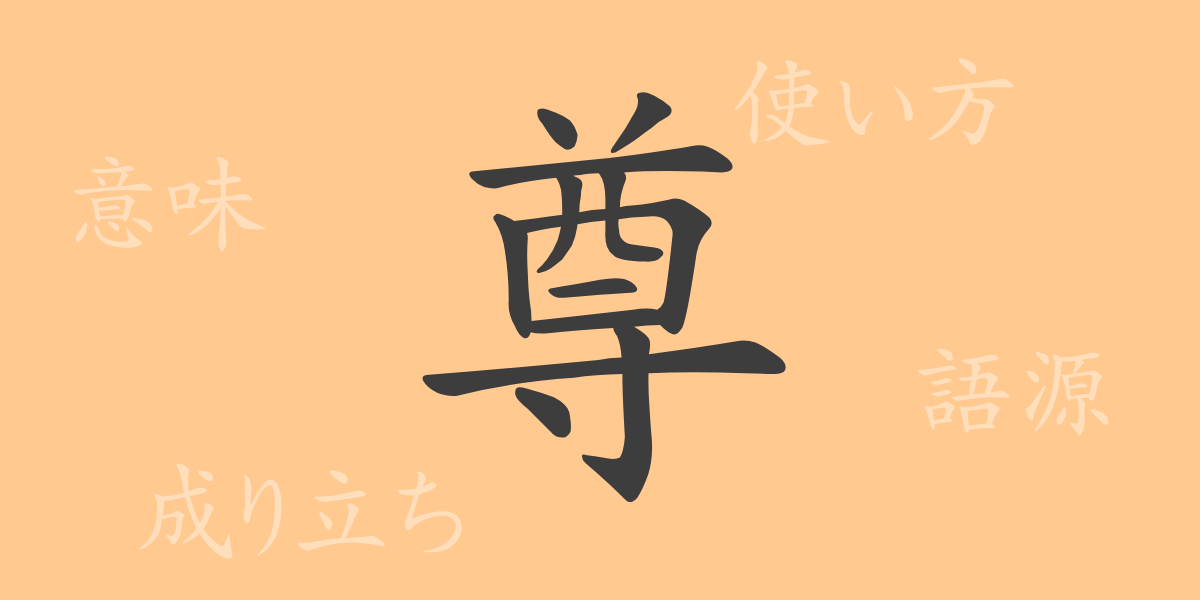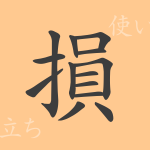The beauty of the Japanese language is shaped by the profound meanings and histories inherent in each character. The commonly used Kanji “尊” (そん)(ソン) (son) is no exception. This single character embodies the spirit of valuing people and things deeply. This article will focus on the Kanji “尊”, exploring its origins, modern usage, and the idioms and proverbs rooted in our lives that reflect its rich expressiveness.
Origin of “尊” (son)
The Kanji “尊” originated from ancient China. Derived from pictographic characters, it originally depicted a ritual wine vessel held in hand, used in sacred ceremonies, which signified an important role. Over time, the meaning of the character evolved to signify ‘preciousness’ or ‘sacredness,’ and its form has changed, developing into the modern “尊” that symbolizes the concept of ‘many’ or ‘much.’
Meaning and Usage of “尊” (son)
“尊” carries meanings of ‘valuable,’ ‘to respect,’ and ‘to honor.’ It is often used to express respect for someone’s personality or dignity and is used to describe something of high value that should be treasured. The adjective “尊い” (とうとい) (toutoi) describes something that is precious and worthy of respect.
Readings, Stroke Count, and Radical of “尊” (son)
Let’s delve into the details of the Kanji “尊”:
- Readings: On’yomi “ソン” (son), Kun’yomi “たっとい” (tattoi), “とうとい” (toutoi), “たっとぶ” (tattobu), “とうとぶ” (toutobu)
- Stroke Count: 12 strokes
- Radical: The radical is “寸” (すん) (sun).
Idioms, Phrases, and Proverbs Using “尊” (son) and Their Meanings
There are many idioms and proverbs containing “尊” that enrich Japanese expression. Some examples include:
- 尊敬 (そんけい) (sonkei): To respect someone’s character or actions.
- 尊重 (そんちょう) (sonchou): To value someone else’s opinions or rights.
- 自尊心 (じそんしん) (jisonshin): Self-respect and valuing oneself.
- 尊王 (そんのう) (sonnou): The ideology of revering the emperor and royal authority.
- 尊大 (そんだい) (sondai): Acting arrogantly or looking down on others.
Conclusion on “尊” (son)
The Kanji “尊” has evolved from ancient to modern times, embedding the concept of respect and esteem in Japanese culture and language. The words and expressions containing “尊” play a crucial role in our communication, reflecting the Japanese virtue of respecting and recognizing value in others. Through this character, we see the Japanese ethos of honoring and cherishing what matters.

























